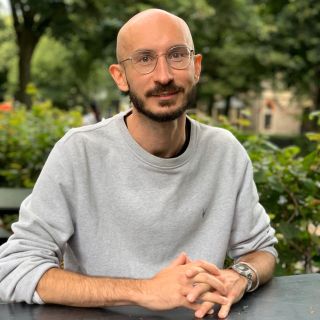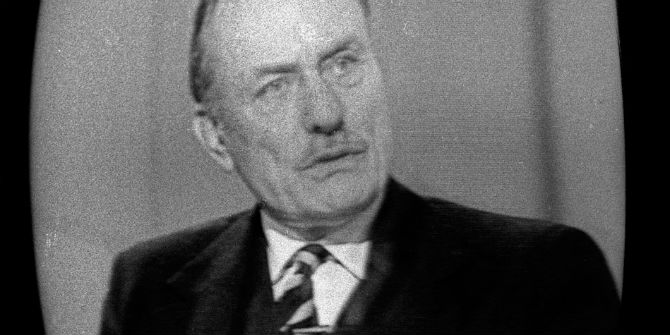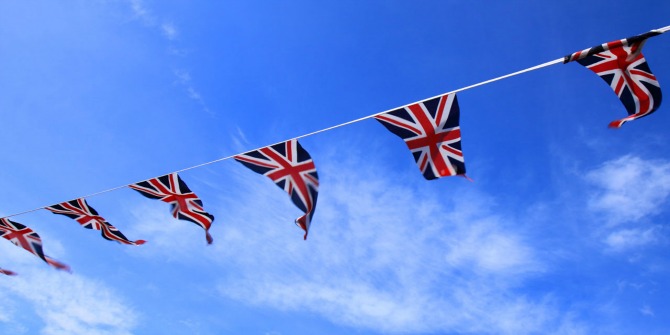 Europe has recently become closely associated with LGBTQ rights. It remains unclear, however, what the role of this association is in everyday European imaginations and identifications. Łukasz Szulc draws on 30 interviews with LGBTQ individuals who moved from Poland to the UK to demonstrate that they view Europe as ‘diverse’, ‘open’ and ‘tolerant’. He also explains that they attribute those characteristics exclusively to Western Europe.
Europe has recently become closely associated with LGBTQ rights. It remains unclear, however, what the role of this association is in everyday European imaginations and identifications. Łukasz Szulc draws on 30 interviews with LGBTQ individuals who moved from Poland to the UK to demonstrate that they view Europe as ‘diverse’, ‘open’ and ‘tolerant’. He also explains that they attribute those characteristics exclusively to Western Europe.
Everyone seems to agree that there is something profoundly queer about Europe. While some conservatives in the East, especially in Russia, dub the region ‘Gayropa’ or ‘Eurosodom’, the liberals in the West celebrate the Eurovision Song Contest as the Gay Olympics. Disagreeing on whether this is something to laugh at or be proud of, both associate the idea of Europe with gender and sexual liberation.
Coincident? I think not. Already for a couple of decades, key European institutions have made a great deal of effort to reimagine Europe as Rainbow Europe, part of a larger project of defining European values along the principles of liberal democracy, human rights, and modernity. The Council of Europe was the first international organisation to consider LGBTQ rights; the EU has gradually included LGBTQ-related issues in its regulations, for example by introducing asylum rights based on sexual orientation and gender identity, and adopting LGBTQ issues as accession criteria.
Has the effort to make Rainbow Europe borne fruit? In my recent research, I interviewed a diverse group of 30 LGBTQ individuals who moved from Poland to the UK after 2004. I asked them what Europe meant to them and if they identified as European.
Imaging Europe
Most of my participants saw Europe in a very favourable light. The most common words they used to talk about it were ‘diversity’, ‘openness’ and ‘tolerance’. Tomasz, a gay man in his 20s based in Derby, explained that the European community was more attractive to him than national communities:
I think that the European community is more interesting to me because it’s bigger. There is more diversity and I believe that when people are in contact with diversity, it becomes a norm for them […] When you see colourful people on the streets, different people from different countries, this is great.
Anna, a lesbian in her 20s based in London, also thought about Europe in a positive way. She associated it with ‘cultural openness and, I don’t know, sexual openness, and generally openness to other people’, adding that she loved visiting other countries and trying local cuisines.
While for Tomasz and Anna – and many other participants – Europe meant diversity and openness, these values were understood in a particular way. The participants emphasized the allegedly uniquely European mix of national cultures, languages, and cuisines. Multiplicity of races or religions, on the other hand, was rarely mentioned, implicitly reproducing the idea of Europe’s foundational Whiteness and Christianity. At the same time, the positive attributes of Europe were exclusively linked to Western and Northern Europe. When asked what Europe meant to her, Anita, a bisexual woman in her 20s based in Manchester, said: ‘Diversity, acceptance, living your life in your own way, being pro-ecological, pro-civil society; these are the West-European and North-European ideals’.
Other participants, too, praised the qualities of Western Europe, while relegating Poland – at times the entire Central and Eastern Europe – to ‘Europe’s backwater’, pejoratively calling it ‘eastern’, ‘right-wing’ or ‘homophobic’. Robin, a non-binary person in their 20s based in Manchester, expressed their disappointment with being from the ‘wrong’ Europe: ‘I’d really like Poland not to be in Eastern Europe, you know? That it walked towards Central-Western Europe. That border was moved. But it’s going in the other direction’. By ‘it’s going in the other direction’, Robin meant the rise of the anti-women and anti-LGBTQ rhetoric in Poland since 2015, when the nationalist-conservative Law and Justice Party (PiS) secured the majority of seats in the parliament. For some participants, this political change in Poland, along with the Brexit referendum in the UK, made them to more readily identify as European.
Feeling European
Nearly all Polish LGBTQs in the UK I interviewed identified as European. For many, those were very strong identifications. Max, a queer person in their 20s based in London, told me that they ‘definitely’ feel European as they ‘have always been a superfan of Europe and the European Union’. My participants juxtaposed their European identifications with other forms of geopolitical belonging in a variety of ways. Mateusz, a gay man in his 20s in Birmingham, explained that he identified as ‘British and Polish, 50% and 50%, and 100% European because those are two different categories for me. It’s national belonging and regional belonging’. Kamil, a gay man in his 40s based in Edinburgh, said that ‘culinarily I’m absolutely Polish, mentally I’m European’, while he defined Europe as ‘a system created by Western Europeans, a system of democracy, tolerance and a certain way of treating freedom’.
For some participants, their European belonging felt stronger in the context of the PiS election win and Brexit. The changes made them feel less welcome in both countries, be it because of their non-normative gender or sexuality, or because of their migrant status as Central and Eastern Europeans. Europe, imagined as ‘diverse’, ‘open’, and ‘tolerant’, offered them an alternative and a more welcoming geopolitical identity. Krystyna, a lesbian in her 40s, told me that she identified as ‘European, Scottish and Polish; Polish in the third place, the lowest one’. She felt bad about putting Poland in the last place ‘because I grew up in Poland and I still have some roots there’, but added that she is ‘ashamed’ of her Polish citizenship, linking it to the growing nationalist politics in the country. At the same time, Krystyna saw the EU as a guarantee of LGBTQ rights in member states. She said she would be ‘sad when Poland leaves the EU: there’ll be Polexit, I’m sure that PiS will make it happen’. This, in her view, would make life for LGBTQ people in Poland more difficult, for example by infringing trans people’s right to change their legal gender: ‘as long as we’re in the EU, the EU won’t allow it’.
For Alex, a non-binary person in her/their 30s, it was primarily Brexit that provoked stronger European feelings. She/they was called ‘fucking European’ twice in London ‘around the time of the referendum’. Alex explained:
The European identity is more active for me now than in the past. I realised that something is being taken away from me […] Even if I don’t identify as European, even if I don’t want to, I’m being identified as European now, in this political climate. So I’m exploring this identity.
Rainbow Europe’s borderlands
Positive imaginations of Europe as leading in gender and sexual liberation, which European institutions, politicians, and journalists have been stimulating for a long time, did bear fruit in a sense that they are now shared by many ‘ordinary’ people. Such imaginations of Rainbow Europe made it possible for the many queer migrants I interviewed to readily identify as European. This proved to be vital for my participants in the current political climate in Poland and in the UK, which, one way or the other, made it difficult for them to entertain their Polish, British or English national identities.
There is a danger, however, in Rainbow Europe morphing into Fortress Europe. By ignoring Europe’s racial and religious prejudice, European gender and sexual liberation can easily become a tool of othering, marking people of different races and religions as not ‘progressive enough’ to deserve a seat at the European table. It therefore remains critical to engage with Rainbow Europe’s borderlands, challenging the limits of the allegedly uniquely European qualities of ‘diversity’, ‘openness’, and ‘tolerance’.
_________________
Note: the above draws on the author’s published work in Sociology, written within the scope of a fellowship funded by the European Commission’s Marie Skłodowska-Curie Actions (699745-FACELOOK-MSCA-IF-EF-ST).
 Łukasz Szulc is Lecturer in Digital Media and Society in the Department of Sociological Studies at the University of Sheffield. His academic interests include cultural and critical studies of media and identity at the intersections of gender, sexuality and transnationalism. Łukasz has recently published the report Queer #PolesinUK: Identity, migration and social media (2019) and the book Transnational Homosexuals in Communist Poland: Cross-Border Flows in Gay and Lesbian Magazines (2018). He tweets @LukaszSzulc.
Łukasz Szulc is Lecturer in Digital Media and Society in the Department of Sociological Studies at the University of Sheffield. His academic interests include cultural and critical studies of media and identity at the intersections of gender, sexuality and transnationalism. Łukasz has recently published the report Queer #PolesinUK: Identity, migration and social media (2019) and the book Transnational Homosexuals in Communist Poland: Cross-Border Flows in Gay and Lesbian Magazines (2018). He tweets @LukaszSzulc.
Photo by Yes and Studio on Unsplash.







